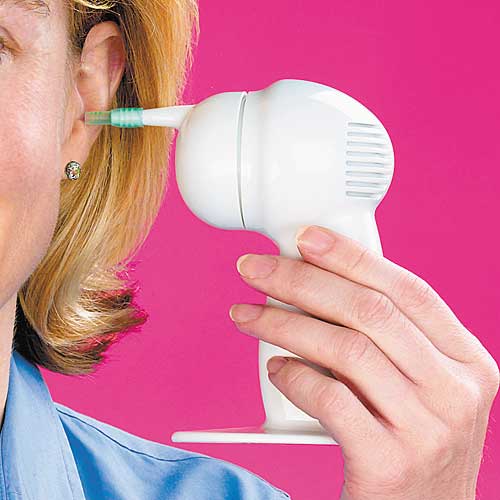Method: The Baby Sleep Site
Expert:
- 35 years old, married mother of two boys
- B.A degree from UC Berkeley, MBA from Ohio State University
- President of Babble Soft
- B.A degree from UC Berkeley, MBA from Ohio State University
- President of Babble Soft
- Baby sleep coach and owner of The Baby Sleep Site™
- In her own words, "By thoroughly researching the key literature and scientific reports, I became an expert in sleep methods, scheduling routines, baby’s development needs and more."
- More: About The Baby Sleep Site How To: 5 Ways to Help Your Child Sleep Through The Night
More: BabySleepSite_Five Way to STTN.pdf, The Baby Sleep Site
1) Sleep Routines
- "...nap and bedtime routines will cue your child that sleep is near and sets his/her expectations. When done right, your child might start to get sleepy and eyes droopy before you even get to Step 2."
- A typical bedtime routine: Diaper and pyjamas, a quiet game, nursing/bottle/sippie (for babies younger than 1 or 2), brushing teeth, potty (if applicable), book, singing or cuddling, then lights out.
- Naptime routine similar to bedtime routine but shorter (10 mins)
- Bath not included because: a) Some parents do not have the time b) Child may have dry skin, water dries out the skin even more c) A bath may rile up some more spirited children
- " Whatever your specific routine is, the steps are unimportant. It is only your consistency that makes your routines successful or not.."
- "...the most misunderstood fact when it comes to a baby's sleep is the idea that you should keep your baby up longer to get more sleep out of her. This does not promote more sleep. In fact, many times it creates less."
- "The problem with a too-late bedtime is your child will get overtired. When we are overtired (adults included), our bodies will release hormones to fight fatigue. This makes it hard for us to settle down and relax and sleep well. This is especially true for your baby..."
- "The second part of the problem is that babies biologically tend to be early risers in the early days...they want to explore! ..one day, he will be a teenager and you will have to drag him out of bed. But for now, this means that regardless of bedtime, you may not get to sleep in like you did before you had kids."
Amount of sleep:
- Babies younger one year and younger : 11 - 12 hours each night
- Toddlers 2 - 3 years old: 10 - 11 hours each night
- The key to choosing the right bedtime is dependent on the time the last nap ends and to make sure it's not too long until bedtime...
- Recommended bedtime:
Babies 6 months and younger: between 6 & 7 pm
Toddlers until 18 months old: between 6 & 8 pm
3) Naps
- "...the better baby naps during the day, the better night sleep can be.."
- "It is normal for babies younger than 6 months old to take 3 - 4 short 30 - 45 minute catnaps."
- " The average amount of napping is 2 - 3 hours each day for this age group."
- " Around 6 months of age (some ready by 5 months, some won't) , you should nap your baby more on a schedule. A typical schedule might be: 7am(wake), 9am(nap), 1pm(nap), 4pm(nap), 7pm(bed). The third nap is optional and most babies lose it by 9 months old.
4) Manage Sleep Associations
-" Is it a bad idea to rock your baby? Can it be harmful to your baby?...it is never a bad idea to cuddle your baby and give her lots of love and affection! It's only when rocking your baby becomes a task difficult to sustain is it a problem."
- "They (babies) might fall asleep .. in their parents' arms/nursing/sucking on a bottle/pacifier.. there isn't a problem with these methods until it is a problem."
- The problem with sleep associations is that your baby needs YOU to recreate the environment in which they fall asleep..
- "Sleep association is NOT a problem...it's only when you can't keep up with the sleep associations that it becomes a problem.
- The key is to break the sleep associations causing problems...the longer you wait, the harder it is for him to sleep well."
5) Manage Night Feedings
Night feeding: " I personally believe that babies vary and so will answer to the question.."
- " My philosophy is to sleep train to fix problems, but not make a child go hungry if they can't comfortably go all night without nutrition."
- After 3 months old:
" For optimum sleep at night, choose zero, one or two times to feed your child and don't at any other time in the night. You are choosing the number of times based on what YOU know about your child. The theory behind this is that you are helping your child feel hungry at appropriate times at night." [consult your paediatrician]
Pros/Cons - Testimonials
Here is the link to the Testimonials:
(As it's from the site itself, of course all the comments praise the method above. I can't seem to find any other info about the site from Google. Maybe because it's rather new? It was set up in 2009, based on the Copyright..)
Concept-wise, it seems reasonable. The only cons about this method is perhaps the really early recommended bedtime which may not be practical for most people who are not necessarily home bound at that time.
Has anyone tried this method--maybe you can share the pros-cons?
Personal opinion: I have a question: How does one become an 'expert' after "..thoroughly researching the key literature and scientific reports"? Anyhow, I think the principles of this method are reasonable and makes sense. I like that she takes into consideration all babies are different, and that she emphasizes on the consistency of the steps and not just the steps itself. I think it's also true that an over tired baby has difficulty settling down. We went out just now and came back later than expected. My baby was soooo sleepy and slept in the car seat. But after gently putting her down on the mattress, she suddenly woke up and started playing again.. It was an hour later before she dozed off! So I suppose her hormones are fighting the fatigue? Only, which hormones? Endorphins? Adrenaline? Doctors, please enlighten us.Thanks!
Carpe Diem, ladies!
Becky




























